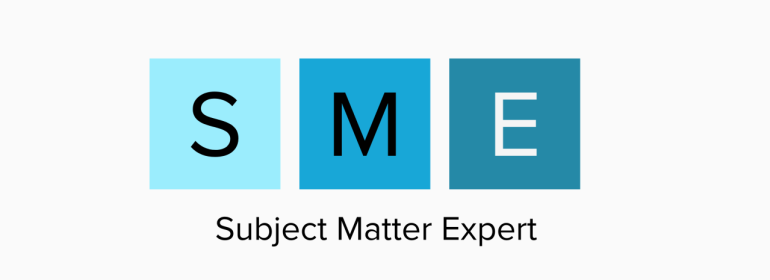In today’s hyper-competitive business, establishing yourself as a recognized expert isn’t just beneficial—it’s essential for long-term success. Getting quoted in major media outlets represents one of the most powerful ways to build credibility, expand your reach, and position yourself as the go-to authority in your field. When journalists feature your insights in newspapers, magazines, television, radio, and online publications, you’re not just sharing knowledge; you’re building an invaluable asset that can transform your professional trajectory.
The media is constantly hungry for expert voices who can provide clarity, context, and compelling perspectives on complex topics. Every day, thousands of reporters, editors, and content creators search for credible sources who can help them tell better stories and provide their audiences with actionable insights.
However, the challenge lies not in the availability of opportunities but in understanding how to position yourself effectively, craft compelling pitches, and deliver the kind of value that makes journalists want to quote you again and again. The difference between experts who regularly appear in major media and those who remain invisible often comes down to strategy, preparation, and understanding what media professionals truly need.
Understanding What Journalists Really Want

The foundation of successful media relations begins with understanding the journalist’s perspective and needs. Reporters operate under intense pressure, working with tight deadlines while constantly seeking credible sources who can provide valuable insights without wasting their time.
Speed and Reliability Are Everything
Journalists prioritize sources who respond quickly and reliably. When breaking news occurs or a story develops, reporters often contact multiple experts simultaneously, and those who respond fastest typically get quoted. This means establishing systems that allow you to respond to media inquiries within an hour whenever possible. The reporter who receives your thoughtful response first is far more likely to feature your expertise than someone who takes days to reply.
Substance Over Self-Promotion
One of the biggest mistakes aspiring expert sources make is treating media interactions as sales opportunities. Journalists aren’t interested in promotional content—they need genuine expertise that serves their audience. Your goal should be to provide valuable insights, analysis, and context that help readers, viewers, or listeners better understand complex topics. When you consistently deliver substance without pushing your agenda, journalists begin to trust you as a reliable source.
Clear, Quotable Communication
Media professionals need sources who can communicate complex ideas in clear, concise language. They’re looking for memorable quotes that capture essential points without requiring extensive editing. The most successful expert sources develop the ability to distill their knowledge into compelling sound bites that work perfectly in various media formats.
Building Your Expert Platform and Credibility

Before journalists will consider you as a credible source, you must establish a platform that demonstrates your expertise and authority in your field. This platform serves as the foundation for all your media relations efforts.
Establish Your Credentials Clearly
Your expert platform should clearly communicate what makes you qualified to speak on specific topics. This might include your professional title, educational background, published works, years of experience, or unique insights gained through your work. When pitching to media, introduce yourself with the credentials most relevant to the story at hand—whether that’s “CEO of XYZ Company,” “author of relevant book,” or “professor specializing in specific area.”
Create Exceptional Content Consistently
Developing a reputation as an expert requires consistently producing high-quality content that demonstrates your knowledge and insights. This might include blog posts, research papers, speaking engagements, podcasts, or video content. When journalists research potential sources, they often look for evidence of your expertise through your published work and public statements.
Define Your Areas of Expertise
Successful expert sources clearly define the topics they can address with authority. Rather than trying to be an expert on everything, focus on specific areas where you have deep knowledge and unique perspectives. Write down your core expertise areas and develop talking points for each, ensuring you can speak confidently and authoritatively on these subjects.
Proactive Strategies for Media Outreach

While some media opportunities come to you, the most successful expert sources actively seek out opportunities to share their knowledge with journalists and media outlets.
Leverage HARO and Similar Platforms
Help a Reporter Out (HARO) represents one of the most accessible entry points for aspiring expert sources. This platform connects journalists seeking sources with experts who can provide valuable insights. By signing up as a source and responding thoughtfully to relevant queries, you can begin building relationships with media professionals while demonstrating your expertise.
Build Genuine Relationships with Media Professionals
The most effective media relations strategies focus on building authentic relationships rather than simply pitching stories. Identify journalists who cover your industry or areas of expertise, follow their work, and engage with their content thoughtfully. When you do reach out with story ideas or expert commentary, they’ll be more likely to consider your input because you’ve demonstrated genuine interest in their work.
Tie Your Expertise to Current Events
One of the most effective ways to generate media coverage involves connecting your expertise to trending news and current events. Stay informed about developments in your industry and broader topics that intersect with your knowledge. When relevant news breaks, quickly reach out to journalists covering the story with your expert perspective and analysis.
Mastering the Art of Media Interviews
Once you’ve secured media opportunities, your performance during interviews determines whether journalists will quote you and seek your expertise in the future.
Preparation Is Key
Before any media interaction, prepare talking points that address likely questions while staying flexible enough to adapt to the conversation’s direction. Anticipate potential topics and develop clear, concise responses that demonstrate your expertise while providing genuine value to the audience.
Take Strong, Defensible Positions
Journalists rarely quote sources who equivocate or provide wishy-washy responses. If you’re truly an expert in your field, you should have informed opinions on relevant topics. Don’t be afraid to take clear positions, but ensure you can back up your statements with evidence and reasoning.
Be Quotable and Memorable
The most successful expert sources develop the ability to communicate in memorable, quotable language. This doesn’t mean being overly clever or cute, but rather finding ways to express complex ideas in clear, compelling terms that resonate with audiences. Practice distilling your key points into concise, impactful statements.
Stay in Your Lane
One of the fastest ways to damage your credibility with journalists is to comment on topics outside your expertise. When approached about subjects you’re not qualified to address, politely decline and suggest alternative experts if possible. This honesty builds trust and increases the likelihood that journalists will contact you for topics within your wheelhouse.
Leveraging Media Coverage for Long-Term Success
Successfully getting quoted in major media is just the beginning—the real value comes from leveraging this coverage to build your reputation and create additional opportunities.
Showcase Your Media Appearances
Create an “As Seen In” section on your website and marketing materials that highlights your media coverage. This social proof demonstrates your credibility to potential clients, partners, and other media professionals. Regularly update this section as you gain additional coverage.
Use Media Coverage to Generate More Opportunities
Each media appearance should serve as a stepping stone to additional opportunities. Share your coverage on social media, include it in your email signature, and mention it in networking conversations. Media coverage often leads to speaking opportunities, consulting engagements, and additional media requests.
Maintain Relationships with Journalists
Getting quoted in major media as a subject expert requires strategic thinking, consistent effort, and genuine expertise. By understanding what journalists need, building a credible platform, proactively seeking opportunities, and delivering value in every interaction, you can establish yourself as a go-to expert source. The investment in time and energy pays dividends through increased credibility, expanded reach, and enhanced professional opportunities that can transform your career and business.

